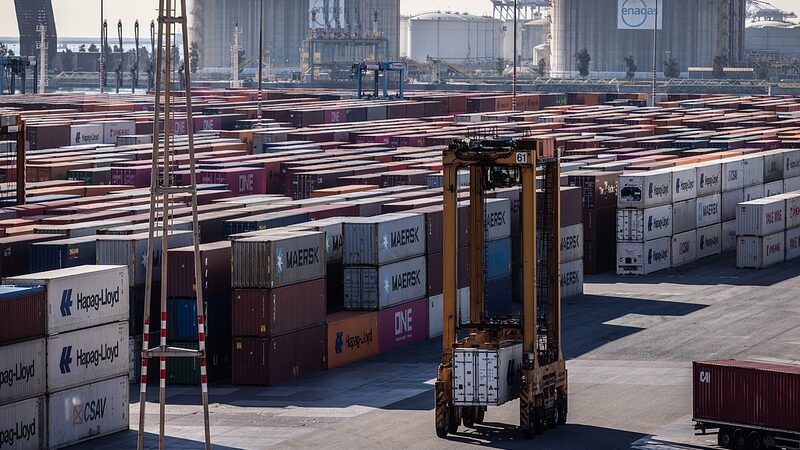
Tariff Hikes Threaten U.S. Housing Affordability, Say Experts
New U.S. tariffs on steel and aluminum may drive up housing costs by thousands, experts warn, echoing 2018 trade war fallout.
My Global News: Voices of a New Era
🌍 Stay Ahead, Stay Global 🚀

New U.S. tariffs on steel and aluminum may drive up housing costs by thousands, experts warn, echoing 2018 trade war fallout.

Trump’s new reciprocal tariff plan draws warnings of supply chain disruptions and consumer price spikes, challenging claims of job creation. Experts analyze risks.

New U.S. tariffs on steel and aluminum aim to boost domestic production, but experts warn of potential long-term challenges for local industries. #TradePolicy

President Trump’s second term begins with renewed trade battles, imposing tariffs on allies and partners, sparking global economic concerns and uncertain effects on consumers.

US imposes significant tariffs on Mexico, Canada, and the Chinese mainland, raising fears of global trade tensions and economic instability.

US tariff policies may backfire by increasing trade and business costs, leading to higher consumer prices and fueling inflation, ultimately undermining economic growth.

New tariffs imposed by both the U.S. and Canada on February 1 are straining their long-term alliance, raising concerns among interdependent industries and businesses on both sides of the border.

US tariffs on Canada, Mexico, and the Chinese mainland are expected to raise costs in the US and strain international trade relations. Mexico’s officials condemn the move as harmful to their economy and sovereignty.

Canadian PM Justin Trudeau announces 25% tariffs on $106.5B of U.S. goods in retaliation to Trump’s tariffs, affecting various products and highlighting economic tensions.

U.S. President Donald Trump is set to impose tariffs on Canada and Mexico starting Feb. 1, citing trade deficits, border control issues, and fentanyl flow. Canadian industries are bracing for impact as tensions rise ahead of a potential North America trade war.